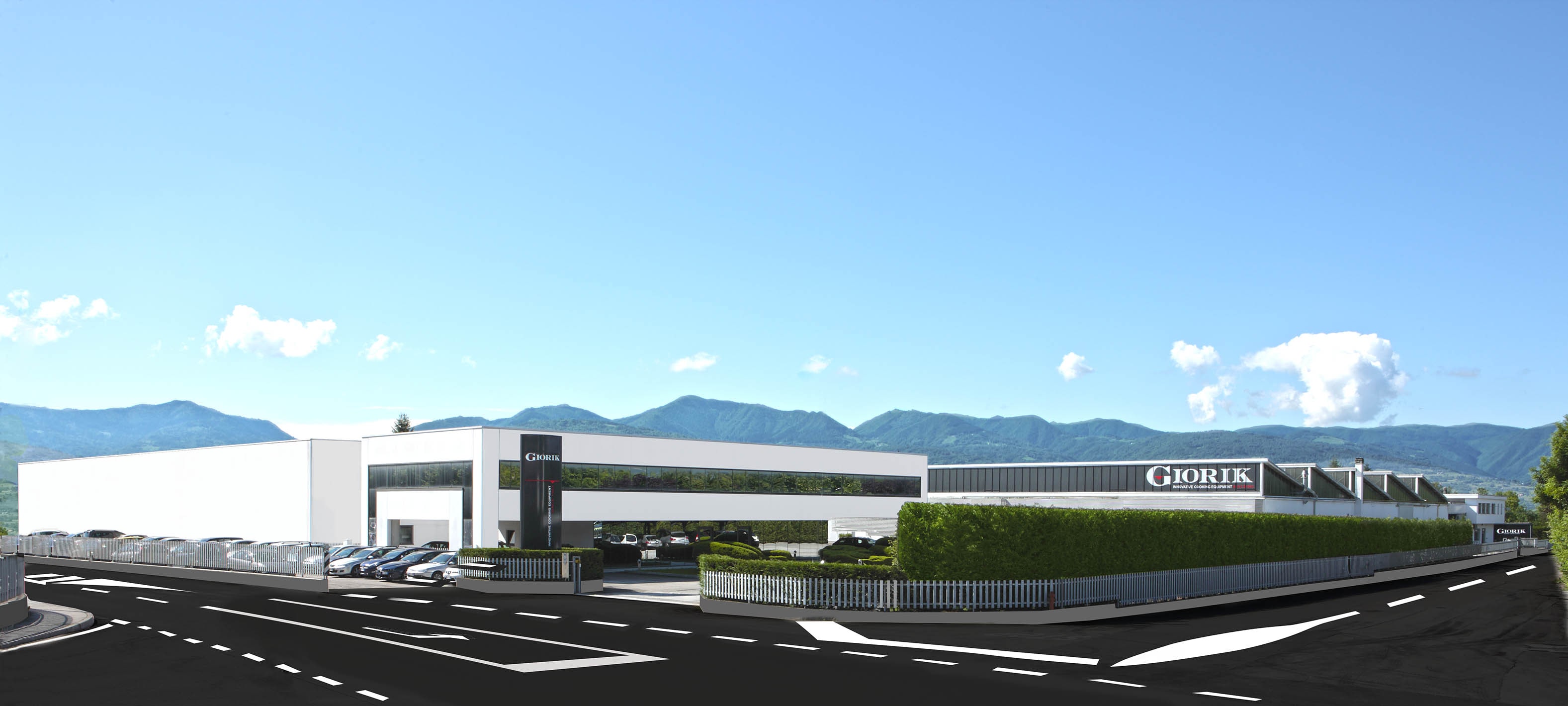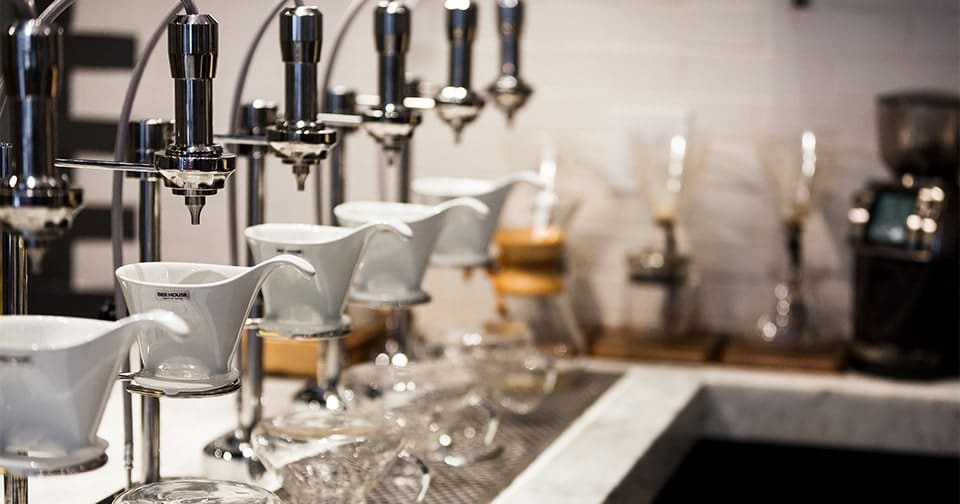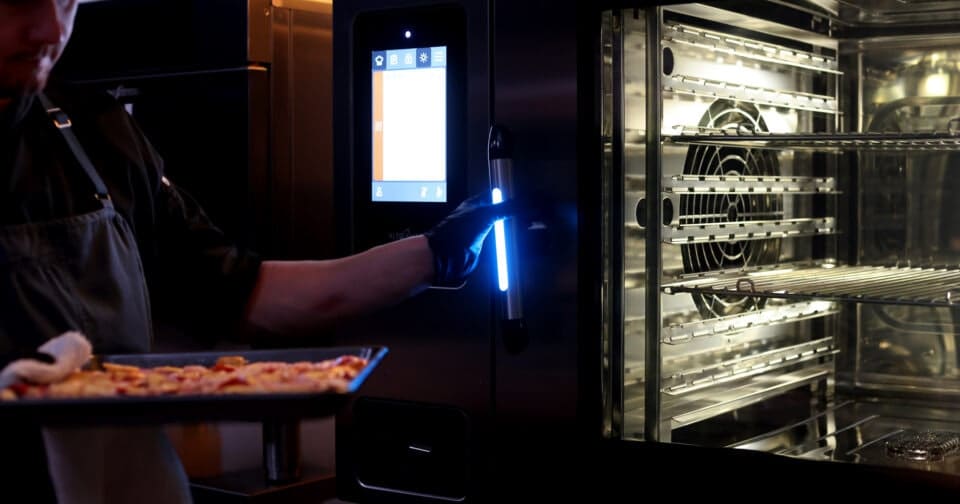
Founded in the early 1960s by Giorgio Candiago, Italian oven manufacturer Giorik began as the logical next step for a family business that had already been making wood-burning cookers for almost 20 years. Since then, the company has grown rapidly to first become Europe’s leading manufacturer of professional fryers and then to carve out a presence in the market for salamander ovens for grilling snacks, as well as convection and combi ovens.
At every step in its journey, innovation has been the key to its success.“In our industry, there are just a few innovative factors,” says Giorik CEO Paolo Candiago. “Most companies adopt new technologies only once they have already proven their value. Only a handful of companies really engage in innovation, and Giorik is at the forefront of that small group,” he says.
“For instance, in 1963, we were the first Italian manufacturer to produce a deep fat fryer and, at the time, trust me, it was a real novelty,” he adds. “We were also the first Italian company to produce high-speed salamanders and, again, the first one to produce pasta cookers. We can proudly say we have brought into the market brand-new products and brand-new solutions.” Over the years, the company has embraced new technologies, but it has also managed to stay true to the core values that it has had since it was formed nearly 50 years ago.
“When we have to produce something new, from something as large as a new product line to something as small as an oven handle, we always pose this question – will this change make the user’s life easier?”, says Candiago. “Imagine you are in a professional kitchen, you have orders piling up, you have waiters complaining, and you have to multitask. Your stress levels are – reasonably – off the charts. The last thing you need, is a complex oven, or a complex fryer, or a complex salamander.”
“You want your equipment to do exactly what you expect it to do,” he adds. “At the same time, you don’t want to have two machines when one could do both tasks just fine. You have so much complexity on your plate already, and we aim to take as much of that as possible away.”
Simple, stylish and smart
The aim of Giorik is to allow its customers to focus on what they do best – creating excellent food – rather than dealing with complicated equipment. Ensuring the best possible user-experience has been at the core of its design journey since the start.
“We devote as much attention as possible to that, and every other value is functional to that,” explains Candiago. “There is no point in innovation if it does not add value.”
Since 2010, Candiago and managing director Alessandro Tonelli have been the sole owners of the company, and their tenure has been marked by a renewed enthusiasm for embracing new technology and pursuing creative design ideas.
The Unika 700 and the Unika 900, along with a range of hobs designed for optimal hygiene and able to be personalized and made to measure, and a range of ovens for small to medium-scale catering establishments – the Eco’ range for general use and the Honoré range for patisserie – followed by the Steambox line were key steps on a journey that continues to this day.
The Symbiotic System in Giorik’s combi ovens allows users to generate steam in two different ways by combining the quality of boiler-generated steam with the speed and economy of steam generated in instant mode. The innovative Meteo System allows users to constantly monitor the climatic status inside the cooking cavity and ensure the optimum conditions for each cooking phase. Another key patent is the Steamtuner, through which users can set both the quantity and the quality of the steam in the cooking cavity by simply adjusting the degree of the steam hydration from dry steam to wet steam.
“I would say the only way to make continuous innovation possible is by gathering daily feedback from our products’ users,” says Tonelli. “Our management has delegated that to Giorik’s chefs, who constantly interact with their peers in professional kitchens to understand their necessities. They then work alongside the R&D department to ensure that our customers’ needs are satisfied. Regardless of how smart executives may be, we lack that creativity, that professional experience, and that vision a chef has.”
Responding to customers’ needs
Giorik’s design process is not led by executives trying to steer the market, but by chefs on the front line. That is why its current oven portfolio are suited to specific market segments. MoveAir is an entry-level option, Kore is more appropriate for mid-sized customers, and Evolution is designed to meet the more intense needs of the hospitality sector.
“Many suppliers tend to offer ovens only on the basis of their size, but very few focus on the most pressing customer’s needs – what type of menu will the customer prepare?” remarks Candiago. “How often and how long will the customer use the oven? What’s the oven’s expected performance? What about water and energy consumption? Many of our competitors neglect these questions and they try to offer a one-size-fits-all solution, which leads to considerable waste.”
“At Giorik, we came to the conclusion that a one-size-fits-all solution does not exist,” he adds. “Our wide range of products, which are classified on the basis of the needs of each market segment, reflects this philosophy and this diversity allows us to deliver the best customer experience possible.”
For Tonelli, the development of the smartphone from a niche tool to a prerequisite for life in the modern world is a lesson in responding to customers’ needs and constantly delivering an improved user experience. It is a story he wants Giorik to emulate.
“I have always been fascinated by it as a tool,” he remarks. “It is an extremely complex and powerful machine, yet it is so simple and intuitive that nobody has ever needed to read the user manual. When you have a problem, you can solve it online in minutes and, if you can’t, you can call or chat with customer support at any time. That’s the type of user experience that we wish to create.”
With the integration of its Touch Control feature 10 years ago, the company went a long way towards achieving that goal. Since then, Giorik has continued to refine the user interface and deliver the advantages of wireless connectivity through Cloud Connection, which enables the remote programming and monitoring of equipment for recipe optimization and predictive maintenance.
“That was a game-changing moment, because we moved closer to providing what our customers want: a powerful machine, capable of carrying out very diverse tasks, that can be controlled very easily,” Tonelli explains. “We have worked really hard to deliver software with a user-friendly user interface [UI] that is very intuitive, and that can assist and guide the user by simplifying complex cooking procedures.”
Our ovens will probably never be as simple to use as an iPhone, but that is our target, and I would say we are doing as much as possible to deliver an optimal user experience for our customers,” he adds.
Staying local, thinking global
Giorik has, over the years, remained loyal to its Italian roots, and it maintains its manufacturing base between Venice and Cortina d’Ampezzo, at the very center of an important industrial region.
“That is very important, but not out of some backward sense of attachment to our territory – or at least, not fully because of that,” says Candiago. “One of the key advantages is that we have ready access to an entire ecosystem of companies we can build synergies with. Our location means we can source an incredible amount of specific know-how about integrating technological solutions we do not excel at.”
Whether it is advanced software or hardware, partners are close by and much of the initial and day-to-day development of these technologies can be outsourced locally.
Nevertheless, Giorik has been selling its products across the world for decades, and it is increasingly establishing a base in key markets to further expand its reach. It has, for example, created Giorik US Corp in South Carolina to establish its brand in North America and to maintain a strict control over quality.
“We try to adapt our approach to the peculiarities of each market that we target,” says Tonelli. “We approach smaller markets by partnering with local dealers, but we try to provide them with as much information and training as possible, because they represent the Giorik brand abroad and we want them to convey the high-quality of our products.”
Giorik’s close relationships with partners and end-users is key to its process of innovation and its pursuit of the highest standards of quality. Equally important, however, is its approach to relationships with foodservice consultants.
“We pride ourselves on our ability to provide the most appropriate solution to each customer,” says Tonelli. “Giorik has a very strong synergy with consultants, because our ovens are produced following the only philosophy that can maximize their return in terms of reputation, and reputation is the greatest asset consultants have.”
Having weathered one of the most challenging years in the history of foodservice, Giorik is now seeing soaring sales as the world steadily emerges from the pandemic. That is due to more than pent-up demand from customers. It is due to the company’s relentless pursuit of innovation and its desire to deeply understand the challenges its clients have been facing.
Whether for their style, their smart features, their high-quality design or the simplicity of use, Giorik ovens are the epitome of informed design.
Jim Banks




